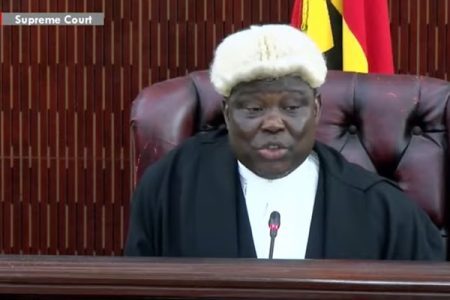In a landmark decision, the Supreme Court of Ghana has quashed mandamus orders issued by the High Court regarding four constituencies—Okaikwei Central, Ablekuma North, Tema Central, and Techiman South.
The unanimous ruling by the apex court found that the High Court’s orders violated the National Democratic Congress’s (NDC) right to a fair hearing.
However, similar orders for the Nsawam and Ahafo Ano North constituencies were upheld.
Procedural fairness undermined
The Supreme Court emphasized the constitutional importance of procedural fairness and the right to a hearing under Article 23 of the 1992 Constitution.
Referencing precedents such as Awuni v. West African Examinations Council and Ex parte Hawa Yakubu, the Court reiterated that all adjudicatory bodies must observe these principles.
The Court found that the High Court had failed to meet this standard by limiting the NDC’s role to that of amicus curiae (friend of the court) rather than formally joining them as affected parties.
This procedural misstep denied the NDC the opportunity to file affidavits or make legal submissions, breaching fundamental principles of natural justice.
Supervisory jurisdiction invoked
Recognizing the procedural irregularities, the Supreme Court exercised its supervisory jurisdiction to quash the mandamus orders for the four constituencies.
The Court noted that these orders were distinct and severable from those upheld for Nsawam and Ahafo Ano North, where procedural flaws were not contested.
Applications for mandamus to continue with new directions
While the Court quashed some of the High Court’s orders, it clarified that the underlying applications for mandamus remained valid.
To rectify the procedural defects, the Court granted the NDC leave to file affidavits and statements of case in response to the applications.
Given the time-sensitive nature of the electoral calendar, the Court abridged filing timelines to two days and directed the High Court to hear the applications on December 31, 2024.
Bias Allegations Unsubstantiated
The NDC had also alleged bias against the High Court judge who issued the original orders.
However, the Supreme Court found insufficient evidence to substantiate these claims.
Nevertheless, to uphold the integrity of the judicial process, the Court reassigned the matter to a different High Court judge for further proceedings.
Reliefs granted and refused
The Court granted the NDC several reliefs, including those related to quashing the mandamus orders and rectifying procedural deficiencies.
However, it refused or dismissed reliefs that sought broader interventions beyond the procedural scope of the case.
Background of the case
The dispute arose when the High Court issued mandamus orders directing the Electoral Commission (EC) to recollate or complete the collation of parliamentary election results in several constituencies.
These orders were granted upon the application of the New Patriotic Party (NPP) without affording the NDC, whose candidates and members were directly affected, the opportunity to be heard.
Arguing that this violated their constitutional rights and principles of natural justice, the NDC petitioned the Supreme Court to quash the orders.
The case raised critical issues concerning the procedural fairness of judicial processes, the scope of mandamus orders, and the discretionary powers of courts.
Implications for electoral justice
This ruling reinforces the principle that all parties affected by judicial decisions must be granted a fair hearing.
By addressing procedural flaws while ensuring the continuation of valid applications, the Supreme Court has struck a balance between upholding justice and preserving the integrity of Ghana’s electoral processes.
The decision also underscores the judiciary’s role in safeguarding constitutional rights, setting a precedent for how similar cases should be handled in the future.
As the applications for mandamus proceed under the Court’s new directives, the nation awaits the resolution of these electoral disputes with heightened interest.
- Enterprise Life launches improved education investment solution - 31 March 2025
- Access Bank Ghana launches “Fa Ketewa Bɛgye Kɛseɛ” promo - 31 March 2025
- President Mahama Calls for unity at Eid Al-Fitr celebration - 31 March 2025

